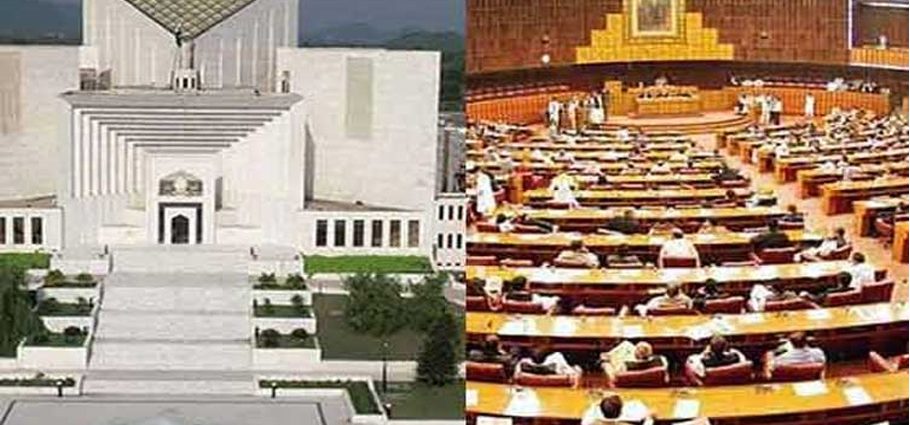Official Secrets Act, Army Act challenged in SC
Sindh Bar Council approaches the top court against trial of civilians in military courts
The development comes days after President Dr Arif Alvi stirred controversy by claiming that he had not signed the Official Secrets (Amendment) Bill and the Pakistan Army (Amendment) Bill, attributing the confusion to his staff’s actions. The revelation plunged the country into a state of chaos.
In a social media post, the president vehemently denied giving his assent to the two bills. He admitted, however, that his staff failed to return the bills to parliament within the stipulated 10-day time frame mandated by Article 75 of the Constitution.
He accused his staff of not only deceiving him but also undermining his authority, effectively concealing the fact that the bills had not been returned.
The SBC, in its petition, stated that the charging the accused persons in relation to the various acts of violence during the May 9 and 10 attacks throughout Pakistan under the Official Secrets Act 1923 and the Pakistan Army Act 1952 is, apart from being unconstitutional, patently beyond the scope of the said acts and is a colourable exercise of power and without jurisdiction.
The petitioner urged the court to declare that the trial of civilians under military laws and before military tribunals violates the Constitution and Pakistan’s international treaty and convention obligations and cannot be countenanced under any circumstances.
The petition, a copy of which is available with The Express Tribune, asked the top court to strike down Sections 2(d), 59 (4) and 94 of the Pakistan Army Act 1952 and Section 2 (dd), 71 (3) and 123 of the Pakistan Air Force Act 1953 and Section 2 (3), 78 (3) and 107 of the Pakistan Navy Ordinance 1961.
“The purported Pakistan Army (Amendment) Act 2023 and the purported Official Secrets (Amendment) Act, 2023 lack presidential assent under Article 75 (1) of the Constitution and are a nullity, and may not be accorded the status of law under Article 75 (3) of the Constitution,” it said.
Alternatively, it urged the court to declare that the Pakistan Army (Amendment) Act 2023 and the Official Secrets (Amendment) Act, 2023 are “ultra vires” (beyond the powers) of the Constitution as they purport to further extend the reach of military laws and military tribunals over civilians (including retired military personnel) and to this extent are of no legal effect.
Official Secrets Act
According to the Official Secrets (Amendment) Act, a person will be guilty of an offence if he intentionally creates a problem of public order or acts against the state.
In addition, if a person attacks or damages a prohibited place and the purpose of this is to directly or indirectly benefit the enemy, then it is also punishable.
Under the said law, the accused will be tried in a special court and a decision will be taken after completing the hearing within 30 days.
Army Act
The Army Act has provisions relating to retirement of military personnel. According to this law, no military personnel will be able to participate in any political activity for two years after retirement, resignation or dismissal, while military personnel or officers performing duties related to sensitive nature of duty shall not participate in political activities for five years after termination of service.
A retired army officer found guilty of violating the Army Act will be punished with imprisonment for a term of up to two years. Also, if any serving or retired army personnel scandalises or ridicules the army on digital or social media, he will be punished under the Electronic Crimes Act.
According to the said law, any serving or retired officer who causes defamation of the army or spreading hatred against it will be punished with imprisonment of two years and fine under the Army Act.

